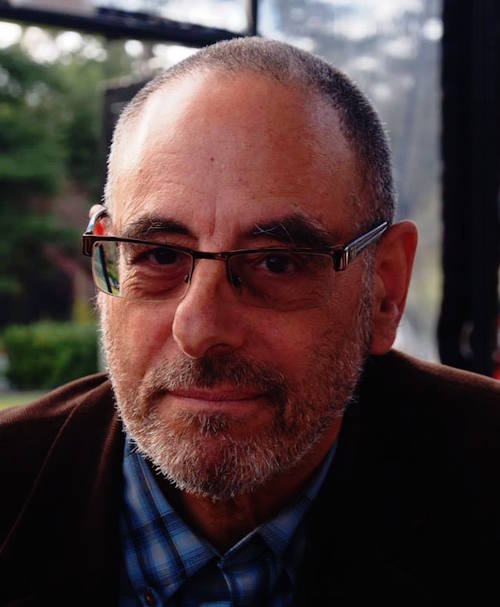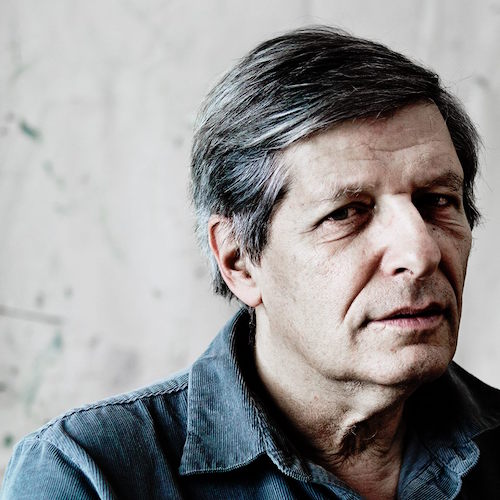This city is a ham. It’s like this all day: poets and skate crews buzzing. A flowing moment; a shuffle of symmetries. The desirable state of a carapace or a whiff of Scooby-Doo. A day keeping the marble hot and throaty. It is not hard here to see what transpires when a poem absorbs the epiphanies of prosody.
Glossiness may actually be an oblique failure at making contact. Even moving towards a sneer, you must harness sparseness. If the grain fails, I will ask us to debate all histories. For these are secret accomplices of pinchmarks. And we are driving thermometers nuts. So far I have never been able to tell a middle from the top. The inverse of numeric citadels. Clearly variables are smashers of dead ends.
Right through embarkments to the bankrupting of the faucet in the kitchen. No thanks for the date the other night. You don’t know the first thing about bathroom fixtures. Why bother? Isn’t a poem born of the chisel? There’s an upside to both venerating literary history and transcending it.
It enlivens my mood when I am asked to introduce poets publicly right before the start of a reading. Whether in mourning or celebration, a poet’s presence is magnificent. Poets are world-builders. This is what I said about three poets I recently introduced to the audiences at The Shed Space in Brooklyn and The Poetry Project in Manhattan.
***

Norman Fischer
Norman Fischer neither flinches at the complacencies of the street nor worships the high claims of postmodernist poetry. There is a willingness on his part to deal head-on with joy, despair, births, disasters, deaths. He sees poetry as a tool for illumination. He believes in the social and spiritual impact of poetry. Flamboyant stoicism does not interest him. His poems can be both comforting and lacerating at the same time. He has always been sensitive to and indignant at the degradations visited upon human beings anywhere in this planet. Neither political nor religious pressures have stunted the dynamism of his artistry. In his allegiances, commitments, volitional resistances, he embodies the figure of the priest as a subversive. In the poem titled “Sixty Five” in his book The Strugglers, the poet states directly: “Nothing is repeated. Each moment is new. When you are here you are here. When you are gone you are gone."
Discovering the writings of Norman Fischer is a big part of my own self-discovery as a writer and human being. His words to the effect that “All genres express love” appeal a lot to me. This is about maintaining a practice of poetry while living in the real world. At Naropa recently, he said: “Real poetry isn’t consciously composed as poetry.”
Fischer defies genre categories. Seemingly germane to his work are these lines from a poem titled “A Young Girl, A Hierophant”:
There are no more ideas out there
Wall’s opaque to direct sunlight
Lilliputian orthodoxies sagging around
Crying out for my mothers, and then some
The expansion of the territory of “poetry” seems to be his aim. A fugitive aesthetic is embedded in both the conception and execution of his writings. There is a rhapsodic resonance to his work even while dealing with the dehumanization that surrounds us:
We went insane from all this shopping
clothes mostly, clothes and shoes,
But also coffee, electronics, accessories, gourmet food
How can we sustain our cheerful fervor
When time, mood, and money
Run aground?(See “Mandelstam/Stone Or The Russian Mall Poems”)
This poet is also an energetic philosopher that has infiltrated a temple. Braiding gashes and mosaics. At home on the road and zendos. A priest unfazed by the wildest bars/drinking holes or the most threatening political barricades. He writes:
I used to be one but now I am many.
I used to be you but now I am me.
His protest against any form of oppression/persecution leads him to side with the ordinary people of Egypt, Libya, Japan, Pakistan, America. Beyond the evident activism is Fischer’s engagement with language in all its exploratory fecundity and complexity. His writings are replete with celebrations of the gift of life and mystical consciousness. He signals:
All I’ve said so far is very personal and I meant
it very personally. I’m saying it personally to you I wouldn’t
be saying this to just anyone…
Is the serial killer personal?
Is the political prisoner the occupier the philosopher
personal?
Is the foot personal?
***

Andrew Levy
Andrew Levy is a stormy poet. He is a poet of confrontation who does not discount peace and warmth. Levy’s is a poetry of instability. He targets contemporary life (personal or communal) and examines it through the voices, personae, and locations of his poems. He writes with a stylistic richness that does not seem programmatic. His lines, sentences, paragraphs, and stanzas bear the touch of a whimsical enchanter. In one of his poems titled “The Wrong Place” in his book Nothing Is Here, he writes:
My name is good doggy,
or, I don’t like it
Last year’s choices
are this year’s tar
I’d like to preregister
for a slice of clairvoyant territory
In those lines, humor is frontal.
The contrapuntal collisions of his poetic and anti-poetic visions make room for expansive artistic possibilities. He certainly shares some affinities with Chile’s Nicanor Parra. Intelligent investigations and interrogations of the environment he finds himself in are always in service to his adventurous aesthetics. Some of his poems stand as indictments aimed at political and religious abuses of the intellect and the body. He asserts: “Beauty isn’t a bed partner to envy, but it has been / forced to act as one.”
His is a dangerous music of words against inauthenticity, tyranny, cruelty, exploitation, governmental and corporate deceit; manipulation.
In full flow this poet testifies to the agency and urgency of art. He worries about our survival in this epoch of never-ending wars, inequality, and economic slavery. In his own words he noted about a person: “He heard a boundary bending message of concern for /
other human beings, his word was love.”
Through multifarious thematic and technical approaches, the poet explores the problems of virtuality and alienation in this age of the Internet. A voice in a poem titled “An Extra Six Ounces of Blue Ribbon Award-Winning,” snarls: “Mind your own business/ forever.”
And leaving the computer screens, Levy appears to be both generous and antagonistic to free-floating urban chatter; white noise. And therein lies his ultimate endurance. His own impulses as a writer are perhaps captured in “Billy Dale Shoots To Kill”—a poem in Don’t Forget to Breathe:
They always pretend to try to “pin me down”
get me to be precise.
That’s the pretense but the truth of it
is that they’re threatened.
And in another poem from that same book titled “An Inconvenient Truth or the Bush Doctrine,” we are told: “A stupid longing not to know / makes us killers."
***

Lewis Warsh
In his poem “Sorcerer,” Lewis Warsh opines: “Perfection is a form of repression.” Perhaps that line showcases both the process and style of this generous and restless poet. Innovation, humor, focus, love, attend to his poems. For Warsh, poetry is a way of life. Producing poems, training poets, reading poems and publishing poets are the activities that have marked his life for more than five decades now. Prose writing comes close behind in his literary forge. He has lent his energy to the formation and sustenance of poetry communities in Bolinas, Massachusetts, and New York.
A second generation member of the famed New York School of Poets, his style of writing almost immediately became an influence on mine when I first encountered his work in 2008. I heard in his oeuvre something I wanted in my own writing: a summon to radical openness; a way of living both inside and outside a literary text. I felt energized by his poetry and poetics. I get a kick out of the fact that most of his writings are Antinomian.
What’s at the core of the artistic work of Lewis Warsh? What drives his writing? What powers his collages? To me, it is the courageous and exuberant interrogation of each existential moment and place and thought and action. A lifetime of writing has not turned him into a cynic or world-weary poet and fictionist. He has been doing it his way through alertness, curiosity, beauty, stubbornness, perseverance, mischievousness, panache. In his poems and stories, the past is as unstable as the present; as the future.
In his works, there is fluidity as to what the political might mean or entail. The subversive authenticity of his ideas remain lustrous: “It’s important to step back from your / reflection, at least for a moment, & find someone else’s image to embrace” (See “Reported Missing”)
His lines are not unconcerned or indifferent: “The divorce between appearance / & reality was settled out of court.”
A lyrical verse comes to life: “Mess things up so you have something/ to complain about later.”
In his artistic output, there is an insistent drive for inter-cultural, historical, and personal inclusiveness. His artistry and industry lay claim too on a multifarious philosophical efflorescence. In his writings and being, tenderness and ruggedness intersect. His erotic poems are life-affirming.
As he crosses paths with strangers, friends, family, students, lovers, enemies, admirers, he reminds us that writing is not only necessary, but a phenomenon that must always be in locomotion. The impact of Lewis Warsh will be felt for many years to come.
Uche Nduka was born in Nigeria to a Christian family. Raised bilingual in Igbo and English, he earned...
Read Full Biography

